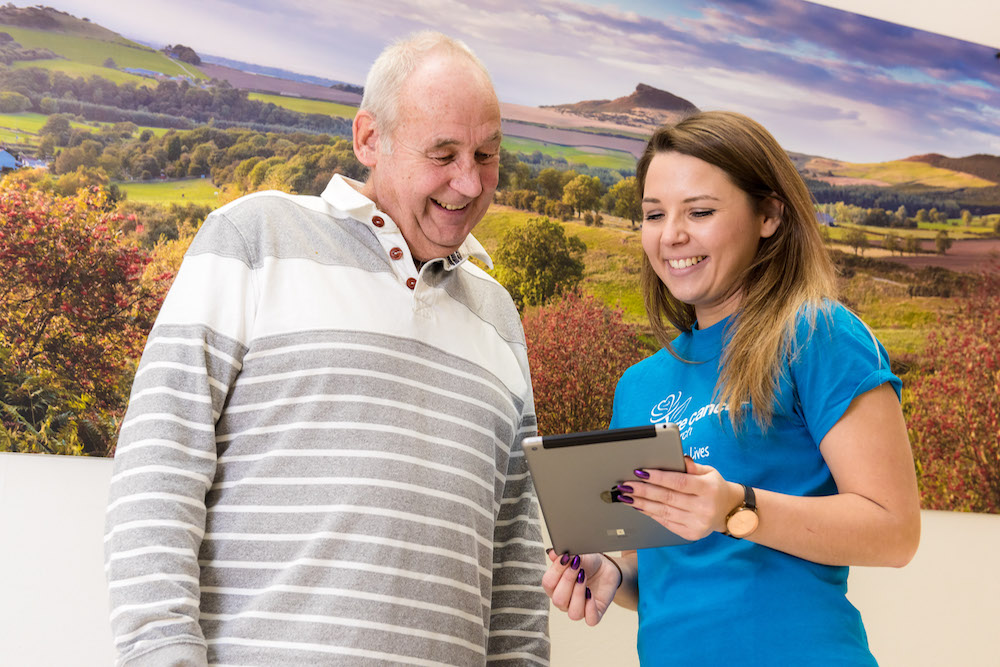 Traffic light cancer health checks launched in Yorkshire communities
Traffic light cancer health checks launched in Yorkshire communities
18 January 2018
A new health check project designed to improve cancer symptom awareness and help-seeking in Yorkshire’s deprived communities has been launched today.
Researchers from PRIME Centre Wales, Cardiff University, funded by a £486,000 award from Yorkshire Cancer Research, are carrying out a trial to find out if an interactive online health check questionnaire can increase early diagnosis in areas of South and West Yorkshire. Early diagnosis can lead to better outcomes, including improved rates of survival. The health checks will also be carried out in similar areas in South Wales.
The trial will focus on people living in areas of high deprivation because cancer outcomes tend to be worse in these communities1. The reasons behind this include higher levels of unhealthy behaviours, such as smoking and drinking alcohol, poor knowledge and awareness of symptoms, and barriers in access to healthcare.
These factors often lead to diagnosis through emergency routes, such as A&E or emergency GP referral. Patients diagnosed with cancer through an emergency route are more likely to be diagnosed at a late stage, which can mean that treatment options are limited and chances of survival are lower2.
The health checks will be delivered by trained lay advisors in towns and cities including Doncaster, Barnsley, Rotherham, Sheffield and Wakefield. Members of the public aged over 40 will be recruited from a variety of settings, including community venues, GP surgeries and pharmacies.
Supported by a lay advisor, people who take part in the health check will be asked questions about their background, lifestyle and health. They will then be provided with a summary page which colour codes their responses using a traffic light system (red, amber and green) to highlight areas where action or advice should be taken.
Louise Padgett, Health Check Advisor, said: “Participants in the study will be asked to complete three questionnaires – one when recruited, one two weeks later and then another six months later. We will ask them about their knowledge of symptoms as well as some background health information and their readiness to seek medical help and advice.
“The questionnaires will then be analysed to find out if the checks have increased symptom awareness. One to one interviews will also be carried out to learn more about how the health checks work in practice.
The research is being led by health psychologist Dr Kate Brain, Screening, Prevention & Early Diagnosis Lead at PRIME centre Wales and Cardiff University’s Division of Population Medicine.
"The health check has already been tested to make sure it is acceptable to people and that it has the potential to improve cancer awareness and increase motivation to seek help. The trial in Yorkshire and Wales will now determine its effectiveness, and we are delighted to have the opportunity to take forward the project thanks to funding from Yorkshire Cancer Research."
The health check team will be at Intake Community Library, Doncaster, today, Goldthorpe Community Shop, Barnsley, on Monday, January 22, and Athersley Community Shop, Barnsley, on Thursday, January 25.

